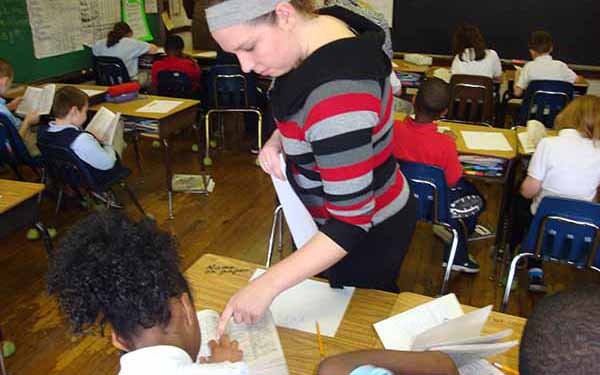Dictionary project aims to increase literacy in Akron schools

Nearly one in five adults living in Summit County struggles with literacy.
A recent study by the National Institute for Literacy revealed that 18 percent of Summit County residents lack the reading skills needed to complete a job application, find an intersection on a map, or even read a nutrition label.
"It's pretty shocking," said Graham Reinke, chairman of service projects for the Rotary Club of Akron.
Even worse, he said, is that one in four children grows up not knowing how to read – largely because they have no reading role models at home, or even a single book. The problem is only compounded as the students get older.
"Up until fourth grade, students are learning to read. After fourth grade, they're reading to learn," Reinke said. "If they are not able to read with reasonable proficiency by then, they're going to struggle all the way through school."
That critical juncture spurred the Akron Rotary Foundation to start a program that would get books in the hands of local third-graders. Created in 2011, the Dictionary Literacy Project provides a Webster's Dictionary & Thesaurus combination book to nearly all third-grade students in Akron public schools.
In 2012, with the help of a $500 Millennium Fund grant, volunteers personally visited and distributed dictionaries to 1,800 students at 31 schools.
"We don't just give it to them, we show them how to use it," said Marcia Holcomb, a volunteer at the dictionary distributions. "We do a hands-on tutorial."
Volunteers, including education students from the University of Akron, teach the kids how to use guide words to alphabetically locate a word in the dictionary. Then, they challenge the students to a relay race to see who can be the first to find words like "zebra" and "whistle."
But the most exciting part of the distribution is when the kids write their name in their new book.
"They're so proud to own a book," Holcomb said. "Some of them can't believe it. For many of them, education is not a priority in their home, so this is their only book."
The dictionary is especially useful for students who come from non-English-speaking families and those who don't have access to the Internet at home. For them, owning a dictionary can mean the difference between success in school and falling behind.
"It's one of the building blocks of literacy," Reinke said, pointing to research that shows up to two-thirds of kids who cannot read proficiently by the end of fourth grade will end up in jail or on welfare. "That's why we're doing what we're doing."
